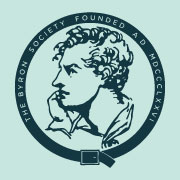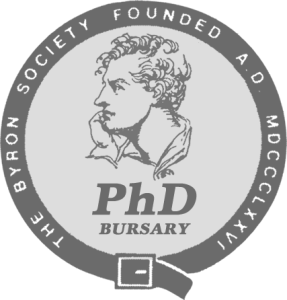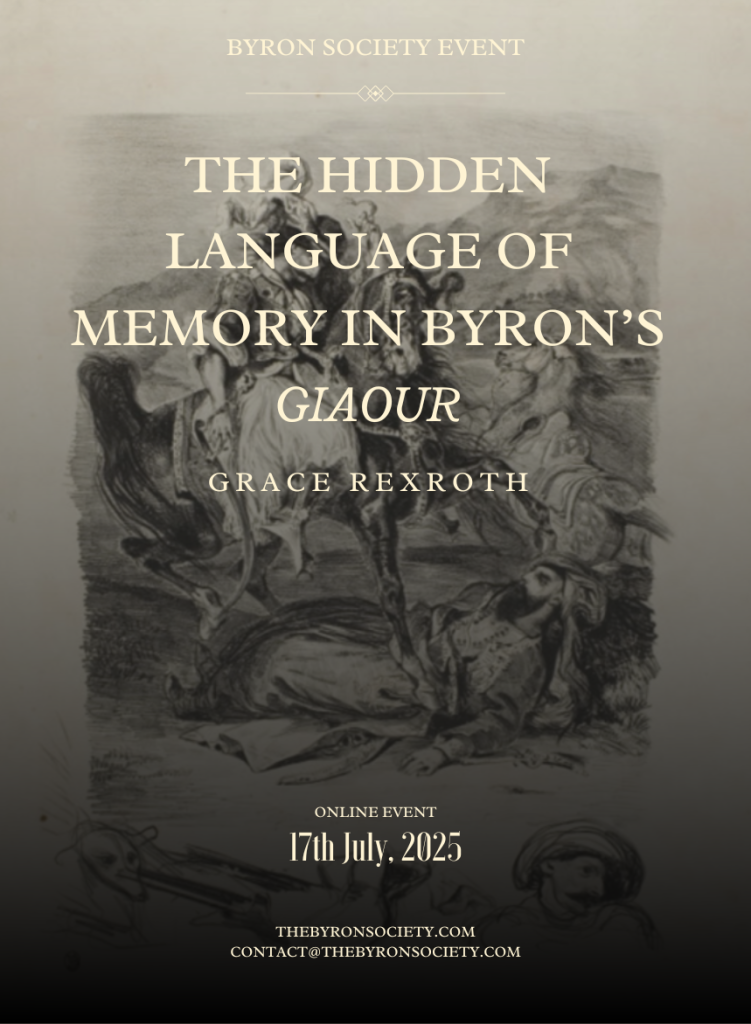Call for Papers – Aftermaths and Afterlives: Byron in 1825 and Beyond
2025 Newstead Abbey Byron Conference
Newstead Abbey, Nottinghamshire
25-26 April 2025
Byron’s posthumous reputation is a complex – not to say controversial – topic. This is highlighted by the stark dichotomy between Goethe’s laudatory assessment of Byron’s poetic genius and Wordsworth’s disparaging dismissal of Byron as an immoral and poetically incompetent madman. Widely revered in the initial decades after his death, with a large statue in Hyde Park and countless new editions, piracies and forgeries of his works testifying to his continued popular appeal, nevertheless the residual whiff of scandal and morally suspect poetry disbarred him from a spot in the Poet’s Corner of Westminster Abbey for over a century.
As definitions of Romanticism coalesced in the early 20th century, with Wordsworth at their heart, Byron was increasingly sidelined – widely perceived as an aberrant and undesirable outlier whose prolific low-quality output had been inexplicably popular with contemporary audiences. This ungenerous and inaccurate assessment has since been overturned, with Byron resuming his place in both the poetic canon and international curricula.
Following the global celebration of Byron’s life and works throughout 2024, the 2025 Newstead Abbey Byron Conference will reflect on the aftermath of Byron’s death and offer an opportunity to discuss the shaping of his posthumous reputations – encompassing both the period immediately after his demise and the longer term damage to, and redemption of, his reputation as both a man and a poet.
We invite submissions for 20 minute papers on the aftermath of Byron’s death and his myriad afterlives. Topics can include but are not restricted to:
- Byron’s autobiographical memoirs and his attempts to shape his own posthumous reputation in prose and poetry
- Biographical accounts of Byron (both hagiographic and derogatory)
- Byromania in all its forms
- Posthumous perceptions of Byron’s poetic value and morality
- Posthumous perceptions of Byron’s moral character
- Byron’s place in the literary marketplace from 1825 onwards
- Critical landscapes (from disparaging dismissal to redemptive reintegration into the canon)
- Piracies, plagiarisms and forgeries of Byron’s works
- Memories and memorials
- Byron’s role as a national icon and political figurehead (for many nations)
- Posthumous translations of Byron’s works
Please send abstracts of no more than 300 words to newsteadbyronconference@gmail.com by the 1st of January 2025. Please also include a short 100 word professional biography.
There will be 3 student/early career bursaries available of £150 each. If you would like to be considered for one of these, please include a request with the proposal submission, outlining your need and any additional sources of funding.



